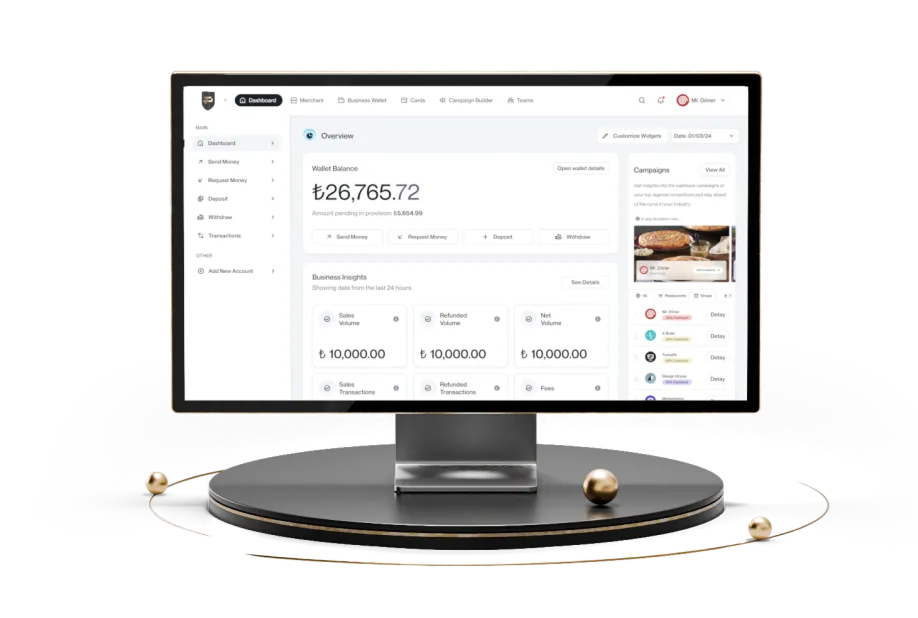2025 Customs and Tax Regulations for Overseas Shopping in Turkiye
In today's world, where online shopping knows no borders, overseas purchases have become increasingly popular. However, with recent changes to customs and tax regulations in Turkey, navigating this process requires more attention. Updates in 2025 include changes to duty-free shopping limits and new tax rates. Being informed about customs taxes, shopping limits, and product restrictions can help avoid unexpected costs. Papel Blog is here to guide you through what to consider when shopping abroad, potential penalties for exceeding limits, and all the details of the new regulations.
New Customs Regulations and Tax Rates
Recent updates to Turkey's customs regulations and tax rates aim to support local producers and stimulate the domestic economy. These adjustments also seek to balance foreign trade and increase tax revenue. Here are the most notable changes:
- Duty-Free Shopping Limit
- Customs Tax Rates
Duty-Free Shopping Limit
With the latest regulations, the duty-free shopping limit for goods imported via postal or express cargo has been reduced from €150 to €30. For purchases of €30 or more, the applicable tax rates are enforced based on the country of origin. This means that orders exceeding €30 will incur taxes at the updated rates depending on the country of origin.
Customs Tax Rates
There are also updates to customs tax rates. For products arriving from European Union (EU) countries, the tax rate has increased from 20% to 30%, while for products from other countries, it has risen from 20% to 60%.
What Are the Limits for Overseas Shopping?
Overseas shopping limits refer to the restrictions on the value and quantity of products individuals can bring into the country via postal or express cargo. These limits are critical for customs tax exemptions and applicable taxes. You should be mindful of these limits and taxation rules to avoid unexpected costs.
Turkey's duty-free shopping limit for items brought via postal or express cargo is €30, including shipping fees. Customs taxes apply to purchases exceeding this amount. Taxation depends on the product's country of origin and type. For example, the new regulations set tax rates at 30% for items from EU countries and 60% for other countries. Taxes are calculated based on the total value of the product and shipping fees.
The updated tax and customs limits for 2025 are reshaping not only shopping habits but also the need for innovation within the fintech ecosystem. To learn how Papel approaches this transformation and to hear the company’s forward-looking technology vision directly from Chairman Seyhan İbrahim Yıldırım, you can explore our exclusive interview here.
How Many Products Can Be Purchased from Abroad?
According to updates from the Ministry of Commerce on January 8, 2025, there are no quantity limits for items brought via postal or express cargo. However, the products must be for personal use and not indicate commercial intent. Orders considered commercial imports may be subject to different customs procedures, leading to potential issues. Additionally, some products, such as tobacco, alcohol, cosmetics, and food items, are subject to specific restrictions and quantity limits.

What Happens If Overseas Shopping Limits Are Exceeded?
Exceeding the designated customs limits for overseas shopping can lead to penalties and additional financial obligations. To ensure a hassle-free shopping experience, avoiding exceeding these limits is essential. Here are the main penalties that may apply:
Administrative Fines
If false or misleading declarations are made, an administrative fine of 10% of the undeclared value may be imposed. Such cases are also reported to the Public Prosecutor's Office and the Financial Crimes Investigation Board.
Confiscation of Goods
Goods that are attempted to be brought into the country in violation of customs regulations may be confiscated by customs authorities. This penalty applies to banned or restricted items brought in without declaration.
What Is Customs Law No. 4458?
Customs Law No. 4458, adopted on October 27, 1999, and published in the Official Gazette on November 4, 1999, provides the legal framework for customs operations in Turkey. Its primary objective is to regulate customs procedures for goods and vehicles entering or leaving the Turkish Customs Territory, encompassing territorial waters, inland waters, and airspace, ensuring efficient and orderly customs operations.
What Are the Rules for Duty-Free Shopping?
Duty-free stores allow travelers to shop without taxes and fees when departing from or entering a country. These stores have different rules and exemptions for domestic and international purchases. For example, products in duty-free stores are typically exempt from VAT. Shopping limits in duty-free stores vary depending on the direction of travel. Departing travelers usually have higher purchase limits, which should be confirmed based on the destination country.
For travelers entering Turkey, the current purchase limits per person are as follows:
Cigarettes: 3 cartons (600 pieces)
Alcoholic Beverages:
Over 22% alcohol: 1 liter
Under 22% alcohol (including wine and champagne): 2 liters
Perfume: 600 ml
Cosmetic Products: 5 items
Chocolate and Confectionery: 2 kg
Coffee: 1 kg
Tea: 1 kg
What Should You Pay Attention to When Shopping Abroad?
We've covered many topics and learned the rules, but wouldn't a quick list be handy? Here's a summary to ensure a smooth overseas shopping experience:
Choose Reliable Sellers and Platforms
Research before purchasing! Check the platform and seller for reliability by reviewing user feedback and ratings. Reading product reviews may seem tedious, but it provides valuable insights.
Customs and Tax Regulations
Ensure your order complies with customs and tax regulations. The duty-free shopping limit for Turkey is €30. Mobile phones, cosmetics, supplements, tobacco, and alcohol are prohibited from being imported via express shipping.
Secure Payment
Ensure the platform you're using is secure. Use credit cards or trusted payment systems to minimize fraud risks.
Shipping and Delivery Process
Make sure you have a tracking number to monitor your shipment.
Return and Exchange Policies
Know the return and exchange policies and whether the product has an international warranty.
Disclaimer: The information in this blog is for general informational purposes only and does not constitute legal, financial, or investment advice. Always seek professional advice for your specific circumstances. Decisions based on this content are at your own risk, and Papel Elektronik Para ve Ödeme Hizmetleri A.Ş. assumes no liability.

